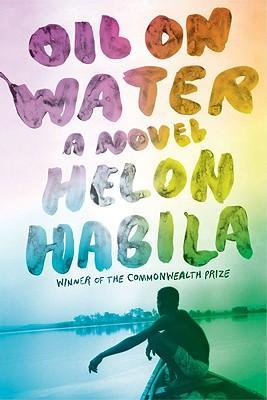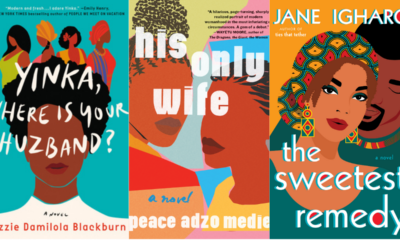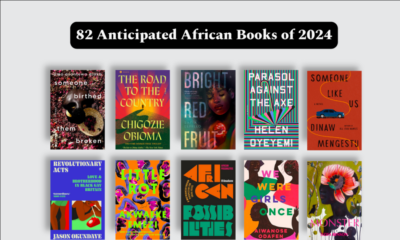Features
BN Book Review: ‘Oil on Water’ – Helon Habila | Reviewed by Damisola Akolade
 Prior to reading ‘Oil on Water’, Helon Habila had stolen my heart with his novel ‘Measuring Time’ (a review of this would be done later). Oil on Water was indeed worth the anticipation. Helon Habila is a fantastic writer and this book reiterates that fact.
Prior to reading ‘Oil on Water’, Helon Habila had stolen my heart with his novel ‘Measuring Time’ (a review of this would be done later). Oil on Water was indeed worth the anticipation. Helon Habila is a fantastic writer and this book reiterates that fact.
Oil on Water tells the story of a young journalist, Rufus, who has been plunged into a dangerous environment in search of the perfect story. The novel is set in Port Harcourt (including the mangrove islands which surround the delta) and provides readers with a view on the issues in the Niger Delta.
Rufus, Zaq (a washed out, veteran journalist) and a few others are on a journey into the depths of the swamps to discover what happened to the kidnapped (and obviously white) wife of a British oil company expatriate. A relatively simple journey turns into something more complicated and arduous upon Zaq’s refusal to return with the other journalists. Rufus then decides to join him and has to face travails ranging from mosquito bites (think heavy duty mangrove mosquitoes) to gun-totting militants. We even have the crazed JTF commander who douses his captives daily with petrol as his soldiers await the day he flicks a match at them.
We are also faced with the decision of whose story is sadder between Zaq and Salomon (the driver of the kidnapped white woman). The book throws light on the consequences of poorly thought out decisions made based on emotion. In all of this, we come to the simple realization that the people of the Niger-Delta i.e. those that inhabit the islands, the people that simply want to fish are caught up in a battle between selfish politicians, nonchalant oil companies, self-righteous, dangerous “freedom-fighting” militants and violent military forces. These island inhabitants suffer the most casualties (human and economic) in the battle for supremacy amongst these powers.
Helon Habila’s writing is almost like poetry. He barely uses any quotation marks in the novel and yet one follows any conversations held by characters. These conversations flow seamlessly into the main writing of the book. His description immerses you into a world you can almost see, touch and smell. For example he writes “As they struggle up the river in a canoe, guided by an old man and a young boy, the reporters encounter nightmarish scenes of devastation: dead birds draped over tree branches, their outstretched wings black and slick with oil; dead fishes bobbed white-bellied between tree roots”. The reader can see, even feel the devastation in the delta, the heat in the mangroves and the mental torture the characters (named and unnamed) go through.
Reading this book will leave one sad in some aspects and triumphant in another. You will also be left angry but most of all, the reader will feel helpless and possibly despondent. This however, in my opinion, is not the writer’s wish. The purpose of this book is to teach, to reach out and to broaden our minds as to the devastation occurring in the delta. Its purpose is to mitigate the dangers of a single story as the author Chimamanda Adichie succinctly put it.
The novel was bought for N1500 at Patabah Bookstore, Shop B18, Adeniran Ogunsanya Shopping Mall (Shoprite), Surulere. Lagos.
__________________________________________________________________________
Damisola Akolade is a feminist and an unrepentant arguer. She is also a top-notch infrastructure/project finance lawyer in the making and hopes to make the Nigeria a better place, somehow, some day. Lover of junk food. When not working or reading, spends most of her time tweeting via her locked account.



























